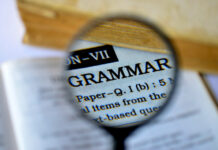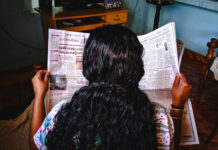Basics
Our basics section provides foundational knowledge for journalists starting their careers and for those wanting to refresh their skills. Learn techniques including news writing, interviewing, story structure, and reporting practices that form the bedrock of quality journalism. All our material is free to download, adapt and use. Scroll down our site map for all the content in this and other sections.
Militaristic words used in journalism
Here we look at some of the most common militaristic words that are regularly used in journalism, along with their intended meaning and possible non-militaristic alternatives.
The power of quotes in journalism
Quotes can define an era, a person, or a story. Used thoughtfully, they transform reporting from factual to memorable, from clear to compelling.
Why some news stories are rejected
There will be times when a news story is withheld from publication, we look at why, what changes might be needed, and how to make sure a story is ethical and legally safe.
Clichés, journalese, and jargon
Journalists need to recognise and then avoid using journalese, jargon, and clichés. Their writing must be clear, easy to understand, and informative.
The power of quotes in journalism
Quotes can define an era, a person, or a story. Used thoughtfully, they transform reporting from factual to memorable, from clear to compelling.
Facts, context, and perspectives
The primary role of a journalist in covering a news story is to uncover verifiable facts, provide context and present the information to the audience.
Grammar for journalists
Journalists need to observe important grammatical rules when writing news stories and avoid common mistakes that could confuse the audience.
Parliamentary reporting for beginners
To cover Parliament, a journalist must master local laws, procedure, and political parties, backed by a solid grasp of history.
Language and style – basics
Learn how to write clear, impactful sentences for better understanding and discover why choosing the right language is essential for your readers.
Assessing news value
The job of the journalist is to sort through daily events and package them into stories in order to inform the public.
Interviewing ‘off the record’
Journalists’ sources sometimes agree to talk only off the record. Here we examine what that means and how to handle it when sources place...
What editors look for when hiring
What's the best preparation for a career in journalism? Media Helping Media asked some experts in the field what they look for when hiring staff.
Clarity is as important as accuracy
Journalists must write clearly as well as accurately using accessible language that the audience can understand.
Covering a news event
Check our news event coverage guide with tips on preparation, on-site reporting, ethical interviews, and capturing compelling photos and video.
The roles of reporters and sub-editors
Streamlined newspaper workflows with minimal editing benefit reporters and sub-editors, ultimately enhancing publication quality.














